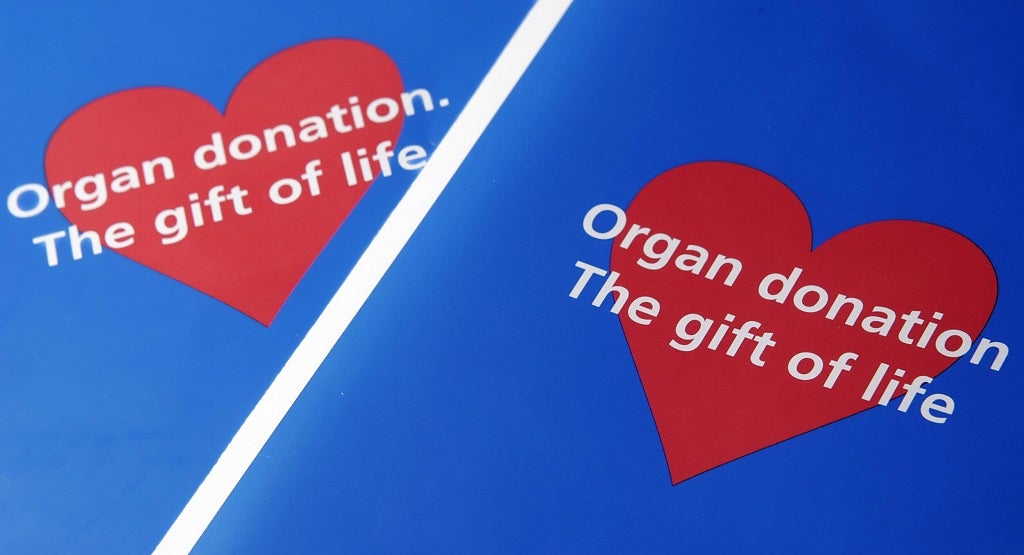Every day three people die waiting for an organ. The number of organs available to transplant over the past five years has remained static, while the number of people waiting for an organ is increasing.
Organ donation saves lives, but despite greater publicity there is still a severe shortage of donors across the country.
Following the miraculous kidney donation of Teddy Houlston, the baby who lived for just 100 minutes, more people are looking into becoming an organ donor.
Here we explain the steps to becoming a donor and answer any questions you may have.
How do I become a donor?
You can join the NHS Organ Donor Register by signing up online, by calling 0300 123 23 23 or by texting SAVE to 62323.
Or you can opt in when registering for a driving licence, a European Health Insurance card, applying for a Boots Advantage card or are registering at a GP surgery.
Who can be a donor?
Anyone, irrespective of age or health can join the register. Those who have been turned down to give blood can also join the register. However, before a donation blood is tested to ensure the donor does not have a transmissible disease.
Which organs can be transplanted?
Kidneys, heart, liver, lungs, pancreas and the small bowel can be transplanted.
Could my face of limbs be transplanted?
For these to be transplanted specific agreement would have to be given either by you or your next of kin after death.
Can I agree to donate some organs but not others?
Yes. You can choose which organs you would wish to donate when registering.
Do people who sign up to the organ register definitely become donors?
No. Only a very small number of people die in a way that enables organ donation to take place. Therefore a large number of people are needed to join the register.
Can I be sure that doctors will try to save me if I am registered as an organ donor?
Yes. The primary duty of care of a doctor is to save their patient’s life. Only if a patient dies, despite the doctor’s best efforts, would a transplant team be called in for an organ donor.
Can you donate an organ when alive?
In some circumstances this is possible. The most common organ donated by a living person is a kidney, as a person can lead a normal life with just one kidney, instead of the usual two.
Does organ donation leave the body disfigured?
Organs are removed with respect by specialist doctors. The incision is carefully closed and covered by a dressing as is normal during surgery.
Can family members see the body after donation?
Yes. Family members are able to spend time with the body of their loved one, in the same way as after any death.
Does a donor’s family have to pay for the cost of donation?
No. All costs are met by the NHS.
Can people buy or sell organs?
No. This is prohibited by law and buying or selling an organ is an offence.
Does being a donor cause a delay to funeral arrangements?
No. The donation operation is performed as soon as is possible after death.
Can I change my mind about becoming a donor?
Yes. You are able to remove your name from the register by calling 0300 123 2323 or visiting the NHS Organ Donation website.

Join our commenting forum
Join thought-provoking conversations, follow other Independent readers and see their replies
Comments